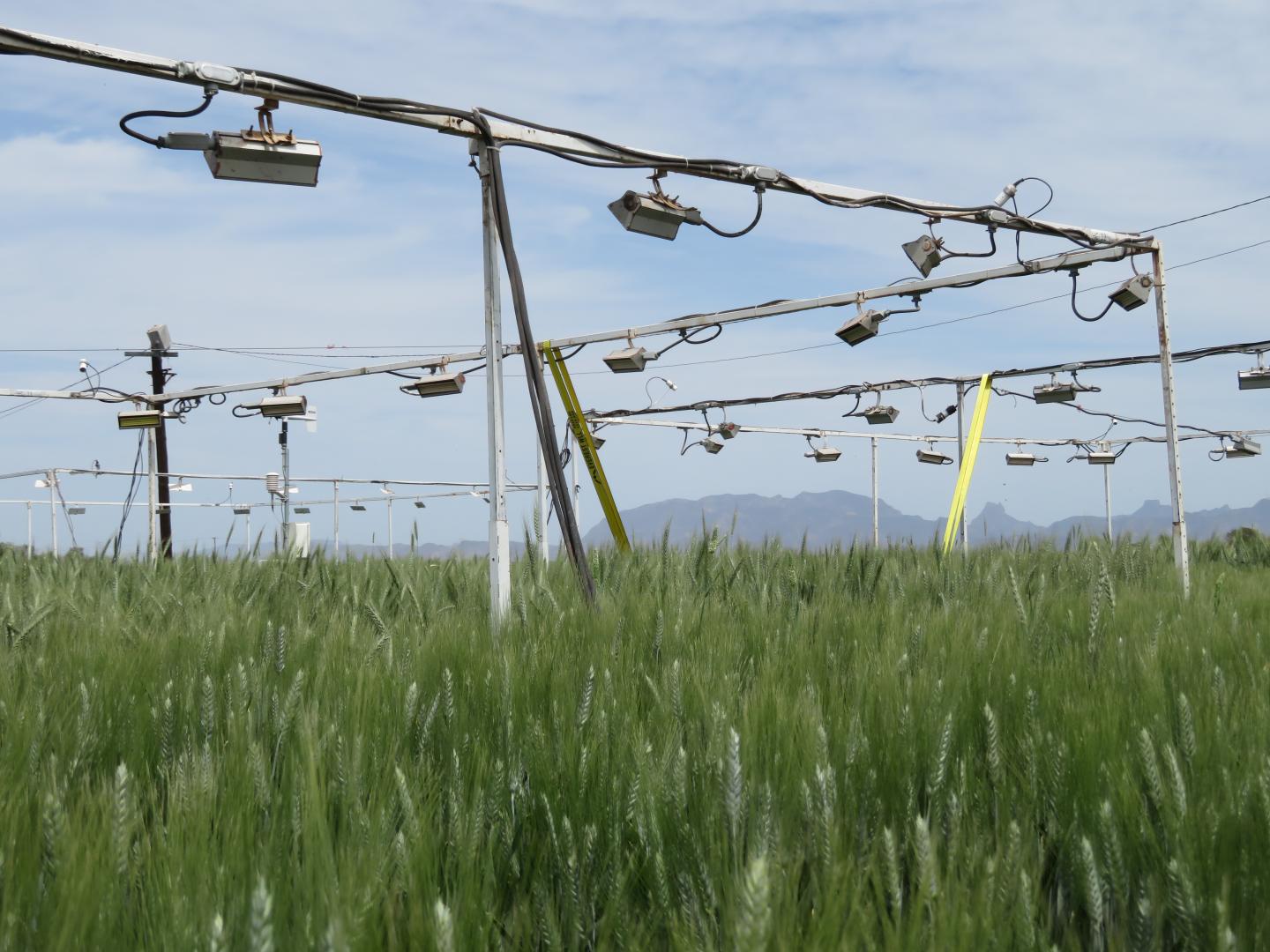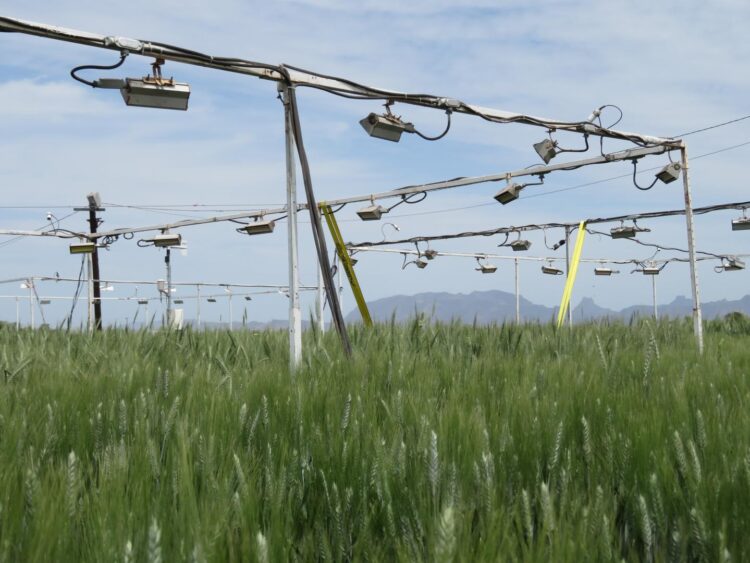
Credit: Photo: Kevin Pixley/CIMMYT, CIMMYT Centro Experimental Norman E. Borlaug, Ciudad Obregon, Mexico.
April 29, 2021. The John Innes Centre (JIC, UK) and the International Maize and Wheat Improvement Center (CIMMYT) — two world class wheat research institutes — have announced a strategic collaboration for joint research, knowledge sharing, and communications to further the global effort to develop the future of wheat.
Wheat, a cornerstone of the human diet that provides 20 percent of all calories and protein consumed worldwide, is threatened by climate change-related drought and heat as well as increased frequency and spread of pest and disease outbreaks. The new collaboration, building on a history of successful joint research achievements, aims to harness state of the art technology to find solutions for the world’s wheat farmers and consumers.
“I am pleased to formalize our longstanding partnership in wheat research with this agreement,” said CIMMYT Deputy Director General for Research Kevin Pixley. “Our combined scientific strengths will enhance our impacts on farmers and consumers and ultimately contribute to global outcomes, such as the Sustainable Development Goal of Zero Hunger.”
Director of the John Innes Centre, Professor Dale Sanders commented, “Recognising and formalising this long-standing partnership will enable researchers from both institutes to focus on the future, where the sustainable development of resilient crops will benefit a great many people around the world.”
Thematic areas for collaboration
Scientists from CIMMYT and JIC will work jointly to apply cutting edge approaches to wheat improvement, including:
- developing and deploying new molecular markers for yield, resilience and nutritional traits in wheat to facilitate deploying genomic breeding approaches using data on the plant’s genetic makeup to improve breeding speed and accuracy;
- generating, sharing and exploiting the diversity of wheat genetic material produced during crossing and identified in seed banks;
- pursuing new technologies and approaches that increase breeding efficiency to introduce improved traits into new wheat varieties; and
- developing improved technologies for rapid disease diagnostics and surveillance.
Plans for future collaborations include establishing a new laboratory in Norwich, UK as part of the Health Plants, Healthy People, Healthy Plant (HP3) initiative.
Bringing innovations to farmers
An important goal of the JIC-CIMMYT collaboration is to expand the impact of the joint research breakthroughs through knowledge sharing and capacity development. Stakeholder-targeted communications will help expand the reach and impact of these activities.
“A key element of this collaboration will be deploying our innovations to geographically diverse regions and key CIMMYT partner countries that rely on smallholder wheat production for their food security and livelihoods,” said CIMMYT Global Wheat Program Director Alison Bentley.
Capacity development and training will include collaborative research projects, staff and student exchanges and co-supervision of graduate students, exchange of materials and data, joint capacity building programmes, and shared connections to the private sector. For example, plans are underway for a wheat improvement summer school for breeders in sub-Saharan African countries and an internship program to work on the Mobile And Real-time PLant disease (MARPLE) portable rust testing project in Ethiopia.
###
Media Contact
Adrian Galvin
[email protected]





